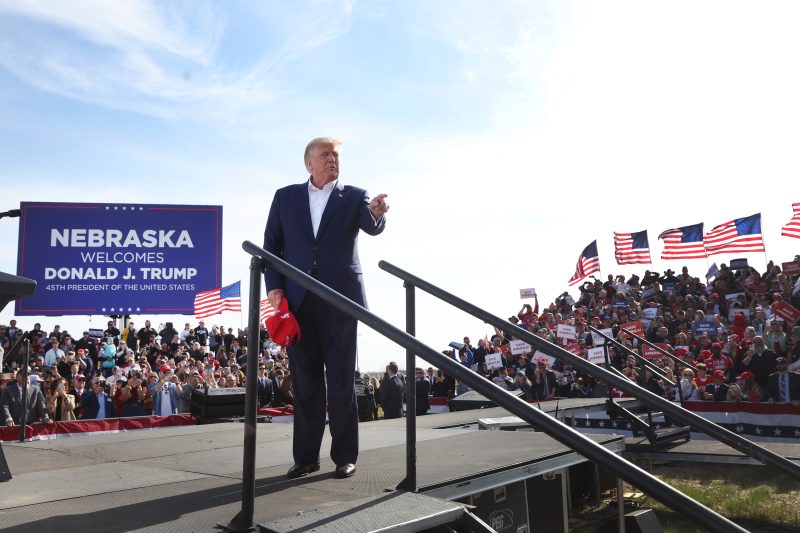In recent years, there has been a growing debate regarding the allocation of electoral votes in the United States. One of the latest developments in this contentious issue involves former President Donald Trump’s push for Nebraska to change its electoral vote allocation. The change being proposed would shift from the current system, which is based on the congressional district method, to a winner-takes-all allocation.
The congressional district method, currently in place in Nebraska and Maine, breaks down the electoral votes by congressional district. This means that the overall winner of the state does not necessarily receive all of its electoral votes. Instead, votes are allocated based on the winner of each individual congressional district, with the remaining two votes going to the overall winner of the state.
Trump’s call for Nebraska to adopt a winner-takes-all system is not a new concept. In fact, 48 out of the 50 states already use this method to allocate their electoral votes. Supporters argue that a winner-takes-all system simplifies the process and ensures that the candidate with the most support in the state is awarded all of its electoral votes. Critics, however, contend that this system can lead to a lack of proportional representation and disenfranchise voters who may not support the winning candidate.
One of the main motivations behind Trump’s push for Nebraska to change its electoral vote allocation is likely rooted in political strategy. By advocating for a winner-takes-all system, Trump may be seeking to maximize his chances of winning Nebraska’s electoral votes in future elections. In a state like Nebraska, where electoral votes can be crucial in a close election, the allocation method can significantly impact the outcome.
It is important to note that changing the electoral vote allocation system in a state like Nebraska would require legislative action. Any proposed legislation to alter the allocation method would likely face significant debate and scrutiny in the state legislature. Additionally, such a change could have far-reaching implications for future elections and how electoral votes are distributed among the states.
Ultimately, the debate over electoral vote allocation in Nebraska reflects broader questions about the fairness and effectiveness of the Electoral College system. As the discussion continues, it is crucial for policymakers and citizens alike to consider the implications of potential changes to the electoral vote allocation method and how they may impact the democratic process in the United States.
In conclusion, Trump’s push for Nebraska to change its electoral vote allocation is part of a larger conversation about the role of the Electoral College and how electoral votes are distributed. Whether Nebraska ultimately adopts a winner-takes-all system or maintains its current congressional district method remains to be seen, but the debate surrounding this issue is likely to continue as the nation grapples with questions of electoral fairness and representation.






















